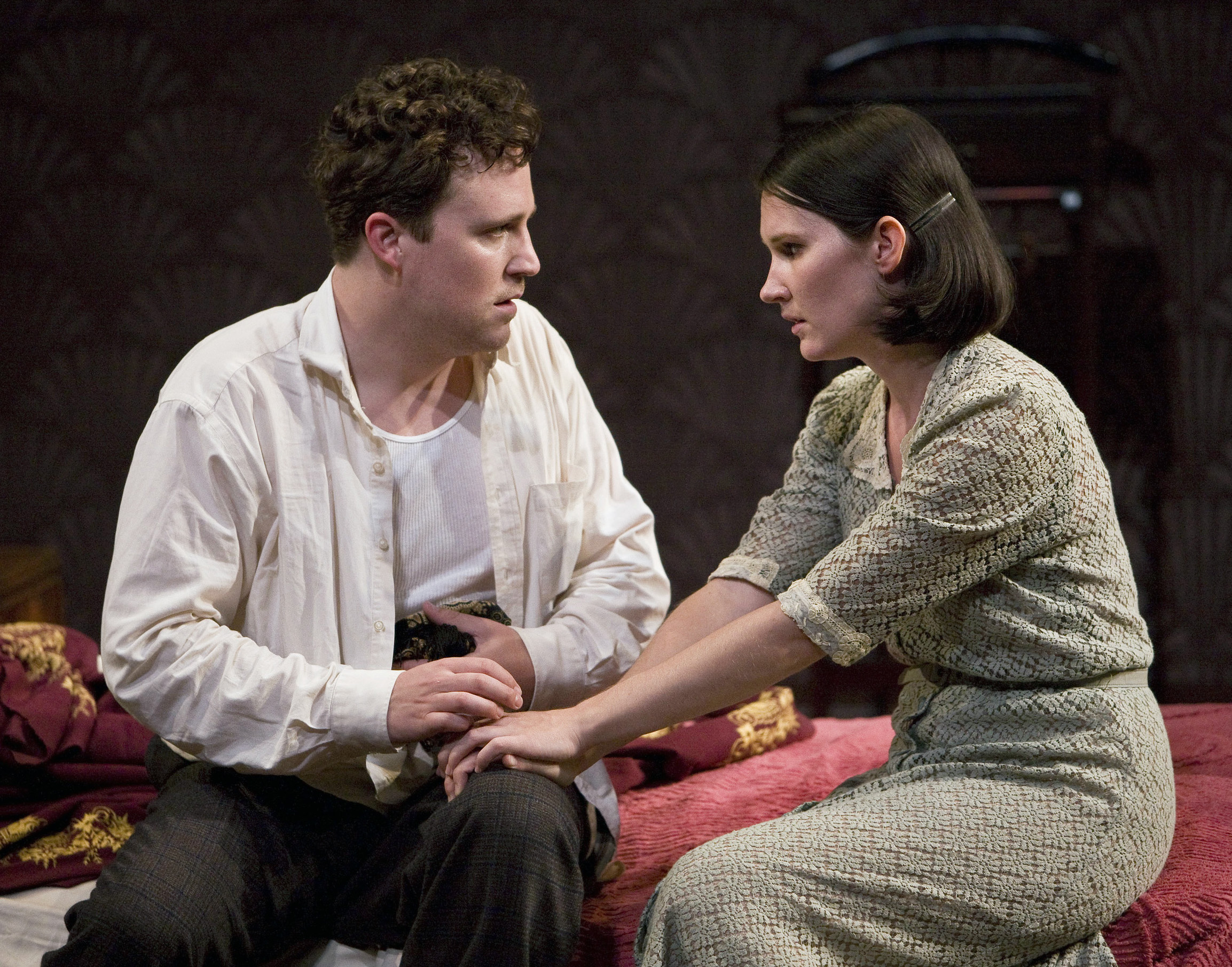If there’s one thing revered American playwright Tennessee Williams is good at, it’s bittersweet devastation.
The dark emotional signature also holds true in director Gordon Edelstein’s take on the early, semi-autobiographical Williams play, “The Glass Menagerie,” playing at the Mark Taper Forum through Oct. 17.
“The Glass Menagerie” is what protagonist and part-time narrator Tom Wingfield (played by Patch Darragh) describes as simply “a memory play.”
Set within the confines of a humble apartment in the city of St. Louis during the 1930s, the play is an intimate glimpse back at Tom’s trying relationship with his family.
While there is a clear separation in time from the point of his recollections and interspersed soliloquies, the play fluidly fuses these shifts between retrospection and present reality.
Elements of time and reflection on the past provide a common thread interwoven among the cast, which is comprised of just four characters.
Judith Ivey is easily the most compelling and comical of the group as Amanda Wingfield, an aged Southern belle and overbearing matriarch.
Spurned by a wayward husband who abandoned the family and “fell in love with long distance” while working for the phone company, Amanda prefers to retreat to thoughts of her youthful glory days entertaining gentlemen callers.
Darragh plays Amanda’s son, Tom, a disgruntled aspiring writer forced to work days as a warehouse worker to support his mother and older sister. Seeking escape from the monotony of work he detests, Tom prefers to retreat to “the movies” at night, though it is unclear how much of his time is spent in the cinema and how much is spent drinking.
Keira Keely is partially convincing as Tom’s painfully shy and crippled older sister, Laura, who prefers to play with a menagerie of collected glass animals rather than face society.
Her nervousness is believable, though often overacted with an excessive quivering voice.
The simple set design allows for both visual and emotional organization in the play ““ a simple bed belongs to introverted Laura, the dining room table marks the most tumultuous family meeting area, while a desk and typewriter define the space of melancholy Tom.
A prominent black-and-white portrait of Mr. Wingfield looms over the apartment with an infectious smile that serves as a blatant reminder of his absence.
However, despite the depressing nature of the Wingfield family’s circumstances, there is still a great deal of humor present in the play, largely due to Ivey’s bumbling enthusiasm and motherly characteristics.
Worried for her children and their future, Amanda’s outlandish plans that Tom must arrange to bring home his co-workers as possible suitors for Laura provide some of the play’s most humorous moments and also bring about its climax.
Seeing marriage as the only possible solution to their worries, the trivial becomes serious and, despite Amanda’s frivolous antics, her sincerity is evident.
When after two hours into the performance the audience is at last introduced to the gentleman caller, what’s possibly more surprising is that it’s played by former “The O.C.” actor Ben McKenzie.
However, McKenzie proves to be far more multifaceted than his acting resume leads on.
Playing the role of Jim O’Connor, McKenzie is arguably the most pivotal character in the play, even with a role two-thirds shorter than that of the rest of the cast. His presence as the only character separate from the dysfunctional Wingfield family significantly impacts their sheltered existence.
Overall, the play is poignantly emotional and well-acted with clearly defined characters. Even with a single set and a small cast, the play never lulls in action and is, as Tennessee Williams would have it, ultimately tragic.
